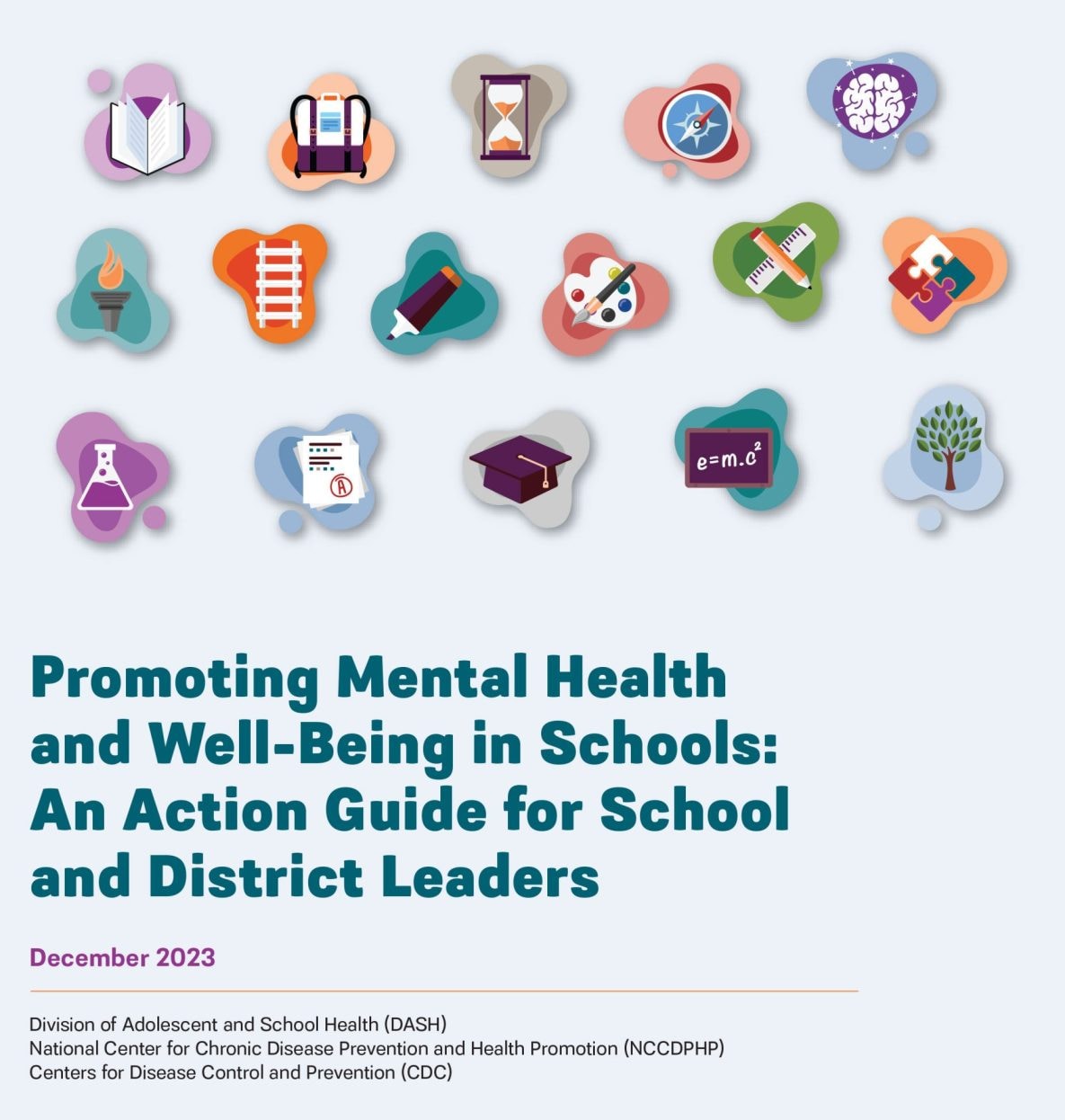Promote Social, Emotional, and Behavioral Learning
What to Know
Social, emotional, and behavioral learning focuses on developing skills to promote physical and mental health. These programs focus on five key areas:
- Self-management, or students’ ability to manage their emotions, thoughts, and behaviors in different situations in a way that helps achieve their goals.
- Responsible decision-making, or students’ ability to make caring and positive choices about their behavior and social interactions across different situations.
- Relationship skills, or students’ ability to build and maintain healthy and supportive relationships and positively interact with diverse people and groups.
- Social awareness, or students’ ability to understand the views of and empathize with others.
- Self-awareness, or students’ ability to understand their own emotions, thoughts, and values and how they affect their behavior.
Research shows that school leaders strongly support programs that improve students’ social skills and emotional development because these programs improve students’ mental health and help build positive school climates. Programs that improve students’ social skills and emotional development also improve academic performance and are a proven prevention strategy widely used in schools.
In a national survey, nearly 9 in 10 parents believed that skills developed through social, emotional, and behavioral learning programs, like respect, cooperation, perseverance, and empathy, should be taught in schools.
What Can Schools Do?
Focus on Equity
- Consider using transformative social and emotional learning to advance equity. A transformative social and emotional learning program includes a focus on understanding and addressing inequities that students experience. For example, a transformative program could give youth the opportunity to find something in their community that is inequitable and develop solutions.
- Consider using screening tools to support students but examine the tools for possible bias and misuse. For example, if you use screening tools to identify students for targeted skills development, think about if the screening questions could create a bias or unfair expectation for any student.
Implementation Tips
Leaders can support the implementation of social, emotional, and behavioral learning in schools by:
- Incorporating social and emotional skills-based instruction into a range of academic subjects, as well as outside the classroom. Students have also benefitted when these programs are implemented in an outdoor, natural space.
- Integrating programs throughout the school setting.
- Including social skills and emotional development competencies in strategic planning and budgeting, human resources, professional development, and operations.
- Ensuring that teachers have the tools and support to put practices or lessons into place in their classrooms. For example, tools could help teachers include social skills and emotional development activities in lesson plans or provide coaching.
- Putting practices in place at the district level. Improvements at the district level, like leaders’ commitment to students’ social and emotional skills development can affect student outcomes like improved academic performance, improved mental health, and fewer disciplinary actions.
- Monitoring implementation and finding opportunities for improvement. Supporting continuous quality improvement could include asking teachers for feedback on curricula or observing social skills and emotional development activities in the classroom.

Want to Learn More?
For more details on promoting social, emotional, and behavioral learning, see Promoting Mental Health and Well-Being in Schools: An Action Guide for School Administrators [PDF - 3 MB]